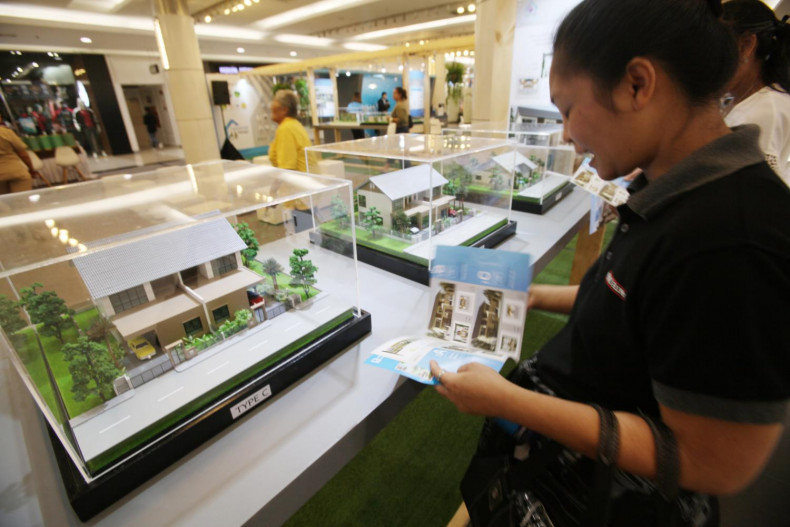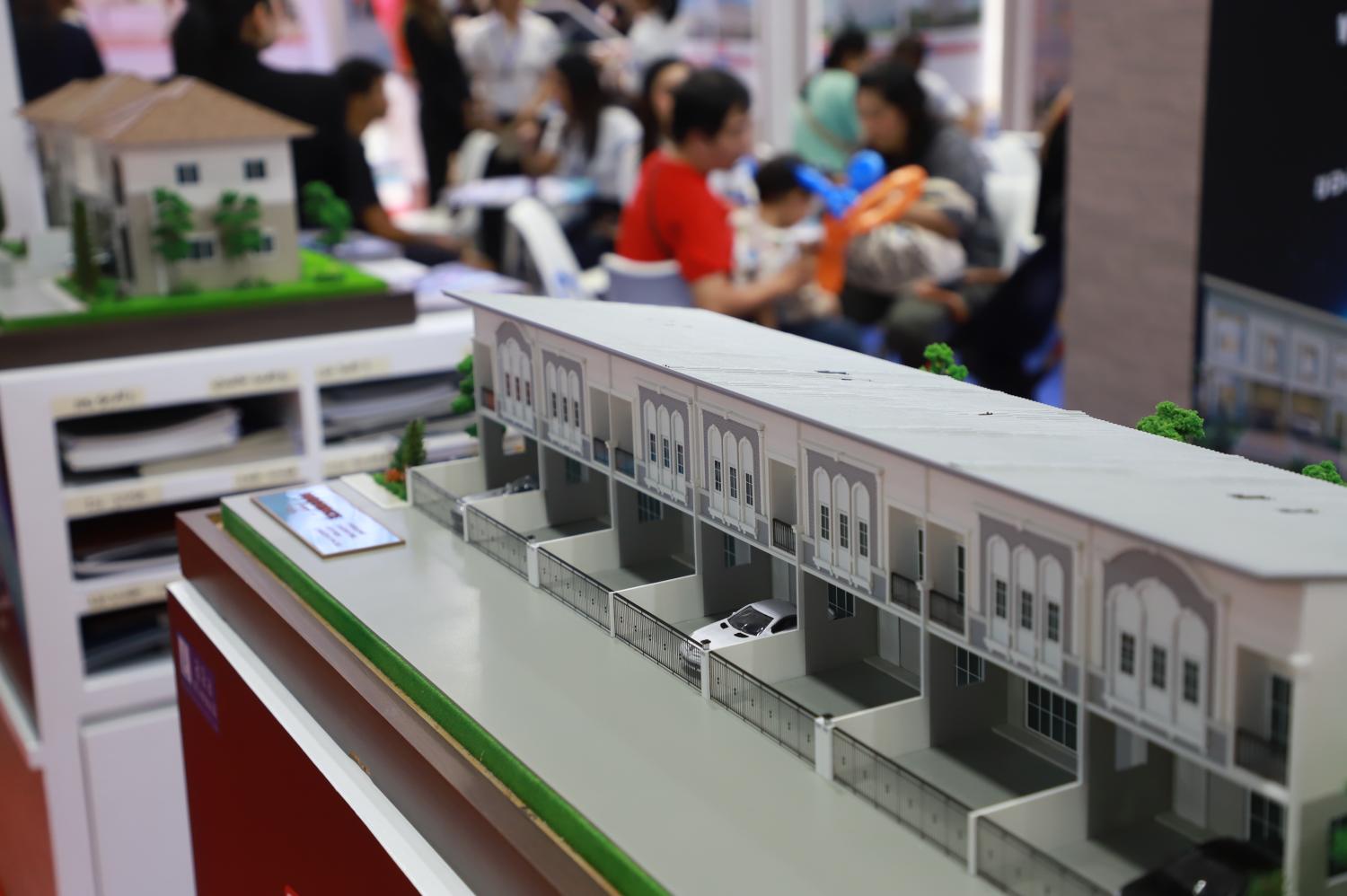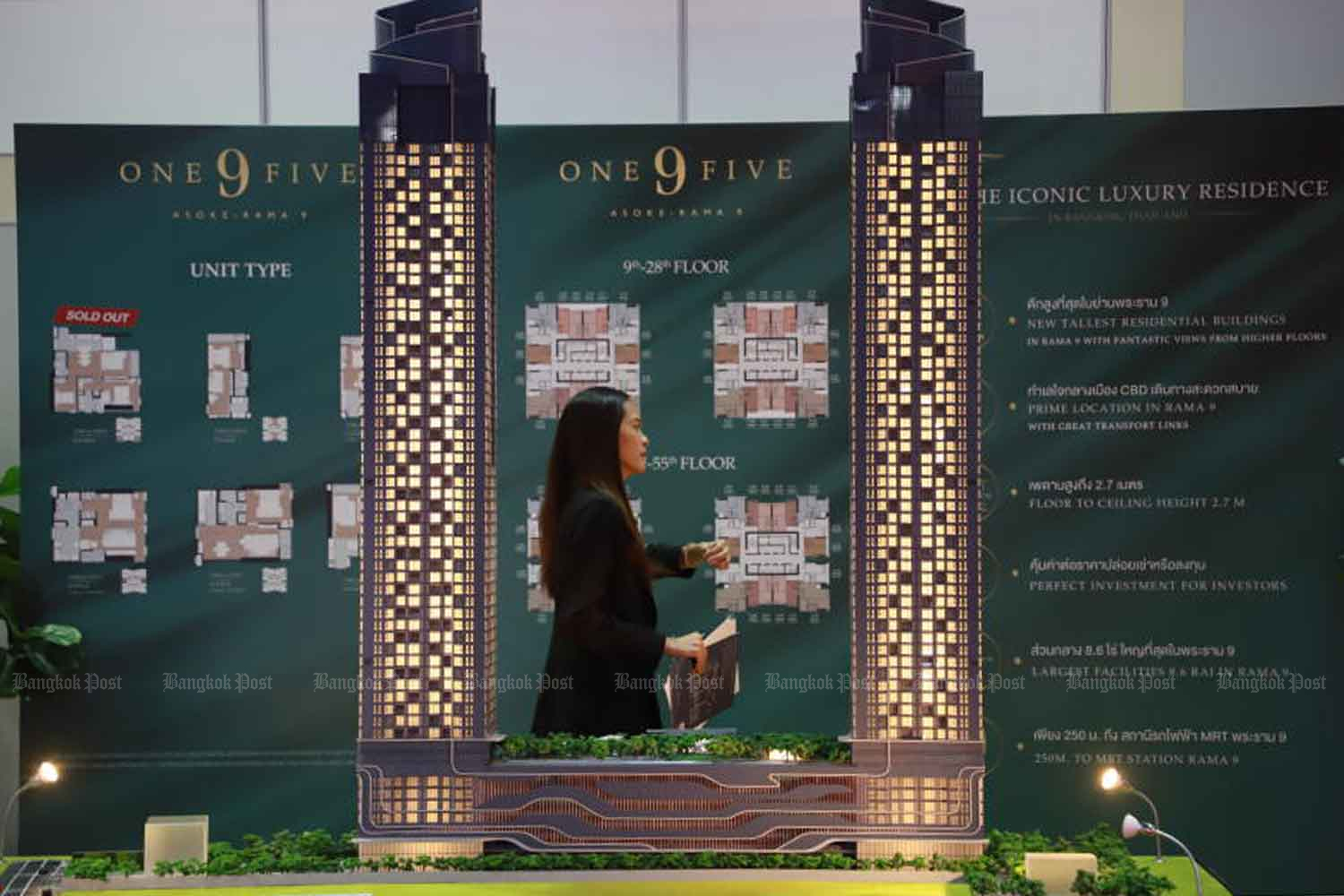A growing number of SET-listed property developers are shifting their strategy toward the homebuilding business to capture demand in the self-built home sector, valued at 211 billion baht last year. This pivot comes as overall housing development slows, prompting companies such as Property Perfect, Pruksa Holding, Origin Property, and Sansiri to diversify beyond traditional development into end-to-end home construction and related services. Executives emphasized that self-built homes offer a sizable growth opportunity, with plans to leverage precast and prefabricated systems to accelerate delivery, enhance quality, and meet rising demand among mid- to high-end buyers. The changes reflect a broader industry trend toward integrated housing solutions and bespoke design, while also signaling a strategic shift to diversify revenue streams amid a challenging macro environment.
Property Perfect (PF) accelerates into the self-built home market
Property Perfect Plc (PF), a prominent SET-listed developer with a broad portfolio of residential properties, has announced plans to expand into the self-built home market during the current year. The company is targeting mid-range homes priced at 5 million baht and above, in addition to high-end customers with robust purchasing power. This strategic expansion into self-built housing is framed as a way to unlock incremental revenue from a market segment valued at 211 billion baht last year. Sanith Adhyanasakul, the chief executive of PF, stressed that the move will open up new revenue streams by serving clients who prefer self-built home concepts rather than conventional construction packages.
PF’s approach centers on serving clients seeking self-built homes in Greater Bangkok and the three provinces within the Eastern Economic Corridor (EEC), areas identified as having strong growth potential. A key component of PF’s plan is the use of a prefabricated system, designed to shorten construction timelines and improve reliability. The emphasis on prefabrication is motivated by a desire to meet the demand for quicker, high-quality builds that align with the expectations of mid- to high-end buyers who value speed, consistency, and modern design. By adopting a modular and repeatable construction method, PF aims to reduce lead times and potentially lower on-site risks associated with traditional on-site builds.
The strategic move by PF reflects a broader industry push among major developers to capture the self-built segment, where customers increasingly seek individualized design options alongside efficient delivery. As PF positions itself, it will likely contend with other sector players experimenting with similar models, including those that have previously leaned heavily on conventional homebuilding processes. PF’s entry into the self-built market could also influence pricing strategies and service packages, potentially encouraging collaborations with designers, engineering firms, and prefab manufacturers to enhance end-to-end offerings.
In terms of financial impact, PF expects the self-built venture to contribute meaningfully to revenue growth amid a sector that has faced slower housing development. By focusing on mid-range and premium segments, PF seeks to attract buyers who value customization, faster delivery, and newer construction technologies. The company’s plan to leverage prefabrication aligns with a broader industry trend toward modular construction, which is increasingly seen as a viable solution to constraints on labor, material costs, and project timelines. PF’s leadership has indicated that this move could diversify its earnings mix, reduce single-project risk, and create scalable platforms for future expansion within Thailand’s evolving housing market.
PF’s announcement also highlights the geographic focus on Greater Bangkok and the Eastern Economic Corridor, regions that are expected to offer attractive demand signals for self-built homes due to urban development, infrastructure upgrades, and population growth. If successful, PF’s self-built program could serve as a model for other developers seeking to diversify away from traditional project-led sales toward full-service homebuilding experiences. The initiative underscores the broader objective of expanding revenue sources while maintaining a competitive edge in the fast-evolving Thai housing market.
Pruksa Holding and Inno Home Construction: a dedicated homebuilding arm
Pruksa Holding Plc has announced plans to actively tap the homebuilding market through its Inno Home Construction subsidiary, leveraging the company’s precast production and construction capabilities to drive expansion. The group aims to generate 1.6 billion baht in revenue from the homebuilding venture, a target that would represent a portion of its broader strategic ambitions. Specifically, the homebuilding venture is expected to account for 30% of the overall 5.4-billion-baht target for Inno Home Construction, with the remaining 70% derived from the construction of residential projects undertaken for the company itself.
Thongma Vijitpongpun, acting group chief executive of Pruksa Holding, outlined the company’s initial framework for the homebuilding business. He noted that self-built home design could begin with the company’s own designs, targeting unit prices ranging from 10 to 30 million baht. This price range aligns with a mid- to high-end customer base seeking bespoke features and high-quality finishes. The plan also contemplates offering both precast components and installation services, enabling customers to opt for a fully integrated build or for modular elements to be supplied separately.
A distinguishing feature of Pruksa’s approach is its emphasis on speed and efficiency. According to Mr. Thongma, the company can complete construction within three months when utilizing the precast system, compared with six months or more for typical on-site builds offered by traditional homebuilders. This accelerated delivery timeline positions Pruksa to meet eager buyers who require rapid turnover or timely project completion, while also appealing to developers seeking reliable precast support for their own projects.
The Inno Home Construction unit appears designed to complement Pruksa’s broader construction capabilities, providing a dedicated platform to deliver self-built homes through a combination of design, precast technology, and installation services. The strategy aims to strengthen the company’s presence in a market where demand for faster, more consistent builds is rising, particularly among customers who value modern design aesthetics and efficient project management. By dedicating resources to self-built homes, Pruksa intends to differentiate itself from conventional housebuilders and deliver integrated solutions that appeal to both end-users and real estate developers seeking professional standards for their projects.
Pruksa’s shift into the homebuilding space also reflects a broader industry pattern of leveraging precast and modular construction to streamline processes and improve project predictability. The company’s expansion aligns with the demand for flexible design options and turnkey solutions, which are increasingly attractive to a market segment that wants customized homes without sacrificing speed. If the venture achieves its revenue target and scales effectively, Pruksa’s Inno Home Construction could become a core driver of growth, helping the company diversify income streams and reduce exposure to cyclical fluctuations in land development and project-based revenue.
Origin Property and Britania: homebuilding as part of a 2025 strategy
Origin Property Plc has signaled that its low-rise housing development subsidiary, Britania Plc, will explore opportunities in the homebuilding business as part of its 2025 strategy. Peerapong Jaroon-ek, chief executive of Origin Property, stated that the company plans for Britania to participate in the homebuilding market, integrating its existing capabilities with new service-oriented offerings. He emphasized the broader context in which Origin Property operates, noting that this year presents notable challenges for the Thai economy and for global conditions. In light of these challenges, Origin Property’s leadership underscored the importance of flexibility and a proactive approach to revenue generation amid a market slowdown.
Origin Property’s strategic pivot into homebuilding reflects a diversification mindset that seeks to complement its traditional development activities with design, construction, and turnkey services. By leveraging its low-rise housing expertise, Britania could offer end-to-end solutions that appeal to buyers who desire not only finished homes but also a seamless construction experience. This approach may help the company maintain a steady revenue stream even when new project pipelines experience contractions, as it can capture demand from buyers who want personalized home design and reliable build quality delivered within shorter timeframes.
The company’s forward-looking stance also resonates with the broader industry trend of combining design, development, and construction into integrated solutions. Origin Property’s move into homebuilding aligns with the goal of sustaining growth by expanding the value chain and adding differentiated services that resonate with customers seeking flexibility and reliability in a challenging macro environment. As Origin Property navigates economic headwinds, its focus on homebuilding could contribute to resilience by creating recurring revenue opportunities and strengthening relationships with clients who value end-to-end project delivery.
Revenue performance in 2024 and the industry-wide pivot toward homebuilding
The shift toward homebuilding among Origin Property, Pruksa Holding, and Property Perfect comes after all three companies reported revenue declines in 2024 compared with the previous year. Origin Property posted the most pronounced drop, with revenue decreasing 21% to 11.9 billion baht. Pruksa Holding also experienced a decline, with revenue down 20% to 21 billion baht. Property Perfect saw a 17% decline, with revenue at 9.4 billion baht. These figures reflect the broader market headwinds facing Thai real estate, including slower housing development and economic uncertainty that constrained buyer demand and project pipelines.
In contrast, Sansiri Plc showed resilience, achieving a 2% rise in revenue to 39.2 billion baht. Despite a softer environment in many segments, Sansiri announced a new move to expand into the homebuilding sector. The company launched its homebuilding service yesterday at the House and Condo Show held at the Queen Sirikit National Convention Centre (QSNCC) in Bangkok. The launch aims to attract interest from prospective buyers of self-built homes as well as from other homebuilders seeking to upgrade their construction capabilities and access Sansiri’s design and manufacturing strengths.
Anat Kittikulmethi, deputy managing director of Sansiri’s project development department for low-rise housing, highlighted the company’s growing precast business as a key enabler for its broader homebuilding ambitions. She noted that with Sansiri’s expanded precast capabilities, the group has the capacity to serve individual clients, real estate developers, and the broader construction sector. Sansiri’s strategy envisions leveraging its existing customer base—buyers who want homes built in Sansiri’s distinctive style—as well as landowners who value prime locations and appreciate Sansiri’s design language. The company also aims to support small-scale developers seeking professional standards for their small-scale projects, aligning with a broader vision to provide scalable, high-quality homebuilding solutions across market segments.
The 2024 performance patterns among these major players illustrate a sector in transition. While some developers faced declining revenues, others found opportunities in expanding their service offerings and adopting new construction methodologies. The emphasis on homebuilding—whether through internal expansion, strategic acquisitions, or partnerships—reflects a shared recognition that delivering end-to-end housing solutions can diversify risk and unlock new revenue pools in an environment where traditional project-based growth has slowed. The Homebuilding sector’s momentum is anchored in several enduring factors, including demand for faster delivery, customization options, and the increasing adoption of precast and modular construction technologies that enable more predictable project timelines and higher-quality outcomes for customers.
Market dynamics, opportunities, and key takeaways
- Strategic diversification into homebuilding aligns with an overarching industry trend toward integrated housing solutions, combining design, construction, and delivery to meet evolving consumer preferences.
- The self-built home market remains sizable, with a valuation of 211 billion baht highlighted by executives as a meaningful growth channel for mid-range and high-end buyers seeking customization and speed.
- Geographic focus areas such as Greater Bangkok and the Eastern Economic Corridor (EEC) are identified as high-potential regions, driven by urban growth, infrastructure development, and population expansion that support sustained demand for modern, well-constructed homes.
- Prefabrication and precast systems are central to the new business models, offering faster construction timelines, improved quality control, and the possibility of scalable production that can support both individual buyers and larger developer clients.
- Pricing strategies target mid- to high-end segments, with unit price ranges and design options designed to balance affordability for a broader audience while delivering premium features that justify faster delivery and enhanced finishes.
- Revenue diversification is a clear objective for multiple players, reducing reliance on a single revenue stream and enabling resilience in the face of market slowdowns.
- The 2024 revenue declines across Origin Property, Pruksa Holding, and Property Perfect underscore the challenges facing developers in a tighter macro environment, while Sansiri’s modest revenue growth and entry into homebuilding signal selective opportunities for those who can leverage core strengths in design and precast manufacturing.
- The industry is likely to see increased collaboration between designers, prefab manufacturers, and construction firms as developers seek integrated, end-to-end delivery with transparent timelines and consistent quality standards.
A closer look at the implications for buyers, developers, and investors
For buyers, the emergence of dedicated homebuilding arms offers potential advantages, including access to turnkey solutions, more consistent quality, and the possibility of faster delivery timelines. Buyers seeking personalized design features can leverage the self-built home options that emphasize customization within a controlled, manufacturer-backed process. The presence of precast and modular components can translate into shorter construction windows, reducing the period during which buyers are displaced or inconvenienced by ongoing builds, and enabling earlier habitation of newly constructed homes.
For developers, the strategic shift toward homebuilding provides a path to diversify income, capitalize on growing demand for customized housing, and enhance project predictability through modular construction methods. By offering end-to-end services—from design and precast components to installation—developers can differentiate themselves in a competitive market and reduce exposure to fluctuating land prices and interest rates. The ability to scale production of precast elements can also improve margins and ensure more stable delivery schedules, a critical advantage during periods of market volatility.
For investors, the move into homebuilding signals a potential recalibration of risk and return profiles across property developers. Companies expanding into the homebuilding space may exhibit higher project execution risk in the short term but could achieve longer-term revenue resilience through recurring service offerings, repeat client demand, and stronger brand value associated with integrated deliverables. Investors will likely scrutinize management’s execution plans, the strength of precast partnerships, and the efficiency gains from fast-tracked construction timelines when evaluating these companies’ growth trajectories.
Conclusion
The Thai property sector is undergoing a notable shift as major developers extend their business models into the homebuilding arena. Property Perfect is moving into self-built homes, focusing on mid-range and premium segments in Greater Bangkok and the EEC, with a prefab-based approach to accelerate delivery. Pruksa Holding is leveraging its Inno Home Construction subsidiary to target 10–30 million-baht self-built designs, emphasizing rapid builds of three months with precast systems and offering both components and installation services. Origin Property, through Britania, is planning to explore homebuilding as part of its 2025 strategy, acknowledging the current economic headwinds while pursuing flexible revenue-generation paths. Sansiri’s expansion into homebuilding, supported by its growing precast capacity, signals a complementary strategy that blends its brand strength with a broader construction services platform.
Collectively, these moves reflect a broader industry trend toward integrated homebuilding solutions that combine design, manufacturing, and construction into end-to-end offerings. The emphasis on precast technology, faster delivery timelines, and the ability to customize homes at scale points to a future where developers pursue diversified revenue streams and resilient business models in the face of market slowdowns. As the sector evolves, buyers can expect more options for personalized, high-quality homes delivered on shorter timelines, while developers and investors monitor execution capabilities, supply chain stability, and the continued adoption of modular construction methods that promise improved predictability and efficiency across Thailand’s housing market.



